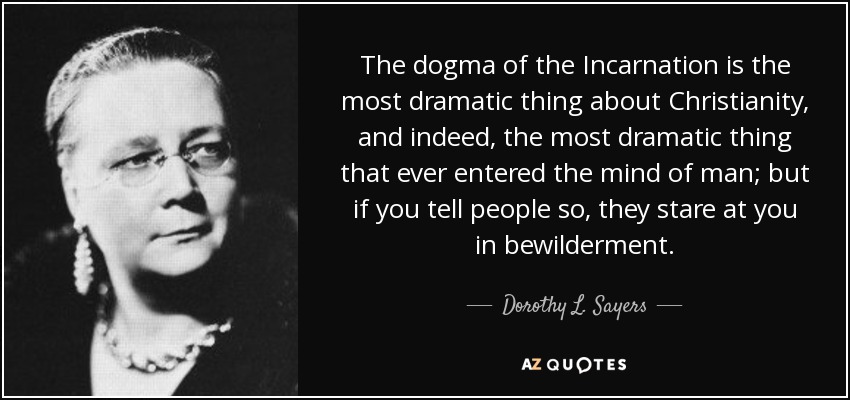Good question. I wonder what we can say about that, because the Bible really is, at least on first glance, all about names. Part of our problem is that we read the names, and assume that these names just have to be that way just because. Like, the town is called Bethlehem, because that's what the town is called. In many ways, that treats this like Star Wars, where the home planet of both Luke and Anakin is Tatooine, because that's what it is. There's no reason why it had to be there, had to be a desert planet, or had to be called Tatooine. That name doesn't mean anything, it's just a Star Wars-y name. You could call it something totally different, and it wouldn't change anything. We feel that same way about the places in the Bible, like they're just Bible-y names, so that's the way it is. And the more often we hear names, like Bethel, Bethphage, Bethlehem, Nazareth, Galilee, all those names just seep into our brains, and leave us thinking that that's just the way names are don't you know.
But here's the thing. Bethlehem means something. It means, literally, house of bread. Gosh, why is this important? Why is the pastor wasting our time with ancient place names? What does this have to do with real life? Well, I'll tell you, because it's actually important. Here's the thing, folks, you need to think about why Bethlehem is a big deal. Why is it important? Well, its importance is related to what happens there. David and Jesus are from there. That's it.
Bethlehem, on its own, actually isn't too interesting. It's the bread house, to be sure, it's in a fertile area, a farming centre, nice and all, but that doesn't make it the centrepiece of history. The thing that makes it important is because Jesus was born there, and ironically enough, he was born there precisely because it was so unimportant. It was a nowhere nothing place, a podunk backwater (sort of like Tatooine, if there was a bright centre to the galaxy, this is the planet that it's farthest from) full of nobody people. Not the glittering jewel of the ancient near east. And yet, and yet, this is the place that Jesus came to, to be incarnate in. This is the environment that Jesus appeared in, to begin his ministry from this unassuming place.
The message that he sends is obvious. Bethlehem is a backwater nothing place. It's a farm town in the middle of nowhere, with people in it who are just people, nothing overly special. And if this is what Jesus can do for them, imagine what he can do for everyone else. For you see, in the real world, we're not the highest and best. We're average, common scrubs. We're everyday people who eat too much, spend too much, pay our bills late, tell off colour jokes, and forget birthdays. This is who we are. Where would Jesus come to earth if he came to earth today? Bethlehem? Or Regina? Or Winnipeg, Ogema, Frankslake, or any of the other places that God's peopel gather around word and sacrament.
And this is the other thing. Now that Jesus has convinced you that on earth he would be surrounded by the average common people of the world, it's time for his greatest statement of all - that he elected to come to a place that even the Bible recognizes as a nowhere place. Bethlehem is important because it's important to us, not beacause it was important to begin with. It's important because of what God did there, marking it as important to us for all time; it definitely wasn't a vital centre of the universe for decades before that. That space was special because Jesus was born there. He wasn't born there because it was special.
And that brings us to church, as most things ought to do. It brings us to church and our time there. What is it that makes that space special? What is it that makes church into a sacred space? Perhaps you've never thought about it too much, perhaps it's just an arbitrary holy ground, that people just decided to put somewhere, and say 'okay, let's worship God here.' Perhaps. Or perhaps there's something bigger behind it. When Jesus came to earth, he did so at Bethlehem. At the house of bread. And if you were ever thinking to yourself that you wish you'd been there, that you wish you'd been there to worship that newborn king at Bethlehem, to have that certainty to see and be sure of the messiah, well, I have good news. The church is still, for you, Bethlehem. It is a house of bread.
What makes church special? Because Jesus is there. The same thing that made Bethelem special. Because Jesus was there. The holiest part of the church is the altar, not because that block of wood is by definition special, nor does it have magic properties, but it is holy because the body and blood of Christ are actually there, in with and under the bread and wine. This church is still a house of bread, and every time Holy Communion is celebrated, we encounter Christ again. He is every bit as present as he was in the original Bethlehem here in this new one, and his body and blood are truly present. If you're excited for Christmas, for the coming of the savior, then we have good news, which is that he has promised to be present where two or three are gathered together in his name, and physically present where the body and blood of Christ are.
 People miss this, you know. We talk a lot about Catechesis, about getting things right from the beginning, and folks roll their eyes, complain, and feel as though we probably spend too much time
People miss this, you know. We talk a lot about Catechesis, about getting things right from the beginning, and folks roll their eyes, complain, and feel as though we probably spend too much time talking about the Catechism, and Holy Communion, and the real presence, and all that. They look at all that stuff, and say to us 'why can't we just talk about God without all that dogma?' Ah yes. But to quote Dorothy L Sayers, the dogma is the drama. If you thought it worth celebrating the arrival of Jesus in a house of bread two thousand years ago, then prepare to celebrate the arrival of Jesus in a house of bread today, wherever his people are gathered around the bread and wine. All Christianity is incarnational Christianity, and as such, we need to remember that the big deal about Christmas is not that a baby was born, it's what he does in life. And what he continues to do.
It's sort of like the birth of a baby in your own family. If you have a child in your family, your relationship doesn't stop there. It continues onwards. If there's a baby born into your lives, you don't just celebrate, applaud, then see them again in a year. Birthdays are a way of marking your continuing relationship, your growing family, where you've come from, and where you're going. It's the same here. We celebrate Christmas not as a day in a vacuum, not as just a day, but as a reminder of how things got started, how this incarnate word came into our world, and a way of continuing to celebrate his presence, not just at a Bethlehem two thousand years ago, but at a Bethlehem very near you on a weekly basis. Take courage and confidence in that, that the light of the world came to us, and didn't leave.






